DAOs, DACs, and Smart Contracts: Defining a Common Framework
This article is aimed at both new and veteran people to Star Atlas, crypto, and digital governance. The purpose of this article is to provide definitions within this unique space while simultaneously informing readers of political governance terms as applied in Web3.0
This article will attempt to define commonly used terms like Smart Contracts, Decentralization, Decentralized Autonomous Organizations (DAOs), and Decentralized Autonomous Corporations (DACs). This article borrows heavily from the Ethereum Foundation’s definitions written by Vitalik Buterin.
For a democracy to function properly, it is imperative that its polis, or member body, have an agreed upon set of rules, definitions, and communal identity. This framework, if you will, is further enhanced by the education of its constituents. Equal access to information isn’t enough. Members must have an equal understanding of available information for a democratic organization to be truly equitable. With the advent of Web3.0 upon us, it is now even more imperative that its participants fully understand the commonly used terms in the Web3.0 space so that they each can make fully informed decisions for themselves
Smart Contracts
Let’s begin with one of the first concepts in the Web3.0 space, smart contract. At its core, a smart contract is a self contained programable code that represents an agreement between two or more parties. In the Web3.0 space, smart-contracts enable another facet of digital autonomy, decentralization.
Vitalik’s definition:
a smart contract is a mechanism involving digital assets and two or more parties, where some or all of the parties put assets in and assets are automatically redistributed among those parties according to a formula based on certain data that is not known at the time the contract is initiated.
There are two key distinctions when it comes to a smart contract, digital assets and finite parties (finite parties implying a finite amount of time horizon on the contract). True smart contracts are not meant to exist ad infinitum. If so, this would imply that smart contracts are completely perfect at the time of creation and implementation and do not require any form of self or future regulation. This simply cannot be true of today’s smart contracts without advancements in artificial intelligence and forms of governance.
Decentralization
As defined by the Oxford dictionary, decentralization is the process by which decision-making authority and planning is shifted away from a centralized location or group authority
There are three main points to consider here:
- Decentralization and centralization are not two opposites sides of a coin, nor are they a light switch. One cannot turn a coin over or flip a switch and expect one outcome to occur and not the other. Much like the political spectrum, decentralization and centralization are at opposite ends of a scale, organizations exhibiting qualities of both to varying levels.
- Decentralization of location. Many current Web3.0 organizations begin in this manner. Calling an organization that had members dispersed all across the world decentralized would not be an incorrect statement. The Taliban, a organization commonly considered decentralized, has members dispersed throughout parts of the Middle-East, many of which are not native Afghans.
- Decentralization of group authority. This concept is perhaps the most difficult challenge for organizations wishing to become truly decentralized. Organizations, generally, do not begin decentralized. There are very few instances in human history where true decentralization occurred form the beginning. The hippie movement during the anti-Vietnam war period is a good example of leaderless decentralized organization asserting influence over governance. For the purposes of Web3.0 discussions, smart contracts are the tool that can help organizations achieve decentralization of authority.
There are many ideas and concepts to unpack when it comes to decentralization. Calling something decentralized can mean many things, some of which are described above. Calling something decentralized also does not mean that every person shares an equal vote or voice within that organization. As reference above, the decentralized Taliban still follow a somewhat decentralized hierarchy for top level decision making.
For anyone forming a decentralized organization, it’s important to determine what aspects of your organization you want decentralized and which aspects you want to retain under a central authority. An organization can exhibit both centralized and decentralized qualities. When joining a “decentralized” organization, it is important to understand what is truly decentralized about that organization.
Decentralized Organizations
According to Buterin:
“The idea of a decentralized organization takes the same concept of an organization, and decentralizes it. Instead of a hierarchical structure managed by a set of humans interacting in person and controlling property via the legal system, a decentralized organization involves a set of humans interacting with each other according to a protocol specified in code, and enforced on the blockchain”
Here is where we slightly disagree with Buterin. Current organizations in society can achieve some level of decentralization, thus they would fit a common definition of a decentralized organization. A key distinction that Buterin makes is that protocols within a decentralized organization are enforceable by the legal system and its underlying framework. We’ll revisit this concept in a moment.
Within the Star Atlas space, many of the existing communities are indeed decentralized. However, many of these organizations have only achieved decentralization of location and not necessarily decentralization of authority. Again, it is important to ask what is truly decentral about an particular group.
Decentralized Autonomous Organizations
The “Holy Grail” of decentralization, at least according to Buterin.
it is an entity that lives on the internet and exists autonomously, but also heavily relies on hiring individuals to perform certain tasks that the automaton itself cannot do
By combining Buterin’s definition of DAOs along with his definition on decentralized organizations, we postulate the following — For an organization to be considered a DAO, it must A.) exist in some decentralized fashion, either by location or group authority, and B.) the rules within the organization must be enforceable through a single or series of smart contracts according to a specified protocol on the blockchain, thus making the organization fully or semi-autonomous.
Both of these elements, A and B, must be present for an organization to be considered a DAO. Additionally, as a third requirement, DAOs must also have some form of internal capital. Otherwise, what would be considered a DAO is simply a Decentralized Agent.
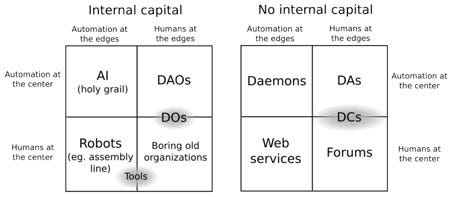
Decentralized Autonomous Corporations
The term DAC is commonly used interchangeably with the term DAO in many discussions. It is generally understood that a DAC is a subset of a DAO, and as such, should exhibit the same qualities of a DAO described earlier. DACs is a relatively new concept by which Buterin offers a simple definition:
a DAC pays dividends.
Dividends are a form of periodic payment that incentivizes shareholders and stakeholders to continue to invest in the corporation. In the Web3.0 crypto space, this mechanic is commonly referred to as staking, where investors are rewarded for holding investments within the company’s smart contract.
Closing Thoughts
These definitions are by no means complete or fully comprehensive. As the Web3.0 space develops, so to will the definitions be expanded upon and evolve.
As individuals enter the Star Atlas metaverse for the first time, and in some cases crypto, it is important that the collective community operate from the same understanding of commonly used terms. For true decentralized governance to occur, member constituents must equally understand the effects of smart contracts, decentralization, and hierarchal structure.
It is also important for existing organizations to correctly use definitions as they apply to their own organizations. At best, misleading or incorrect terminology can lead to distrust of fledgling systems by new members. At worst, unsuspecting and uninformed new members may join organizations that harbor ill intent and exploit these knowledge gaps. We call upon all organizations to be responsible when describing their organizations.
Lastly, further discussions regarding decentralization and DAOs will be needed to further define the space. Through insightful discussion and careful examination, Web3.0 stakeholders and programmers can become informed, furthering their ability to perfect true Web3.0 decentralized governance.
About the Author: Krigs
Star Atlas Discount
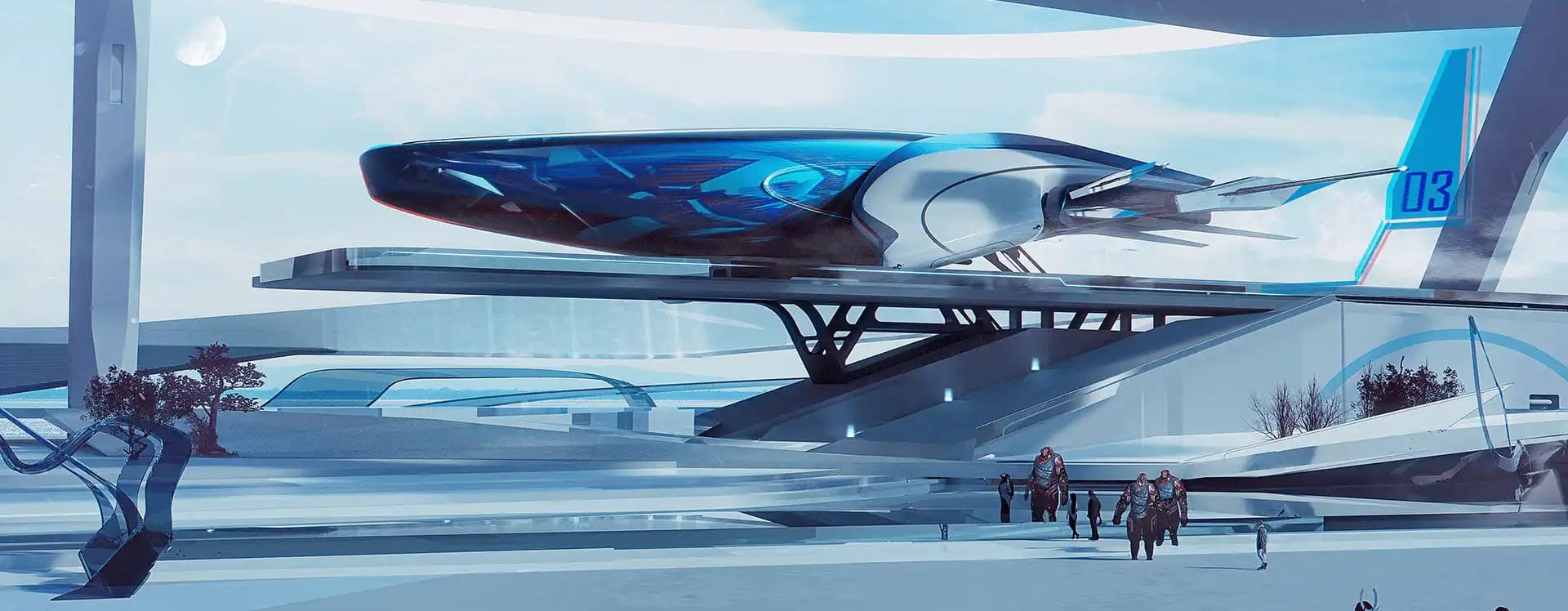
news via inbox
Get news from the Hologram first

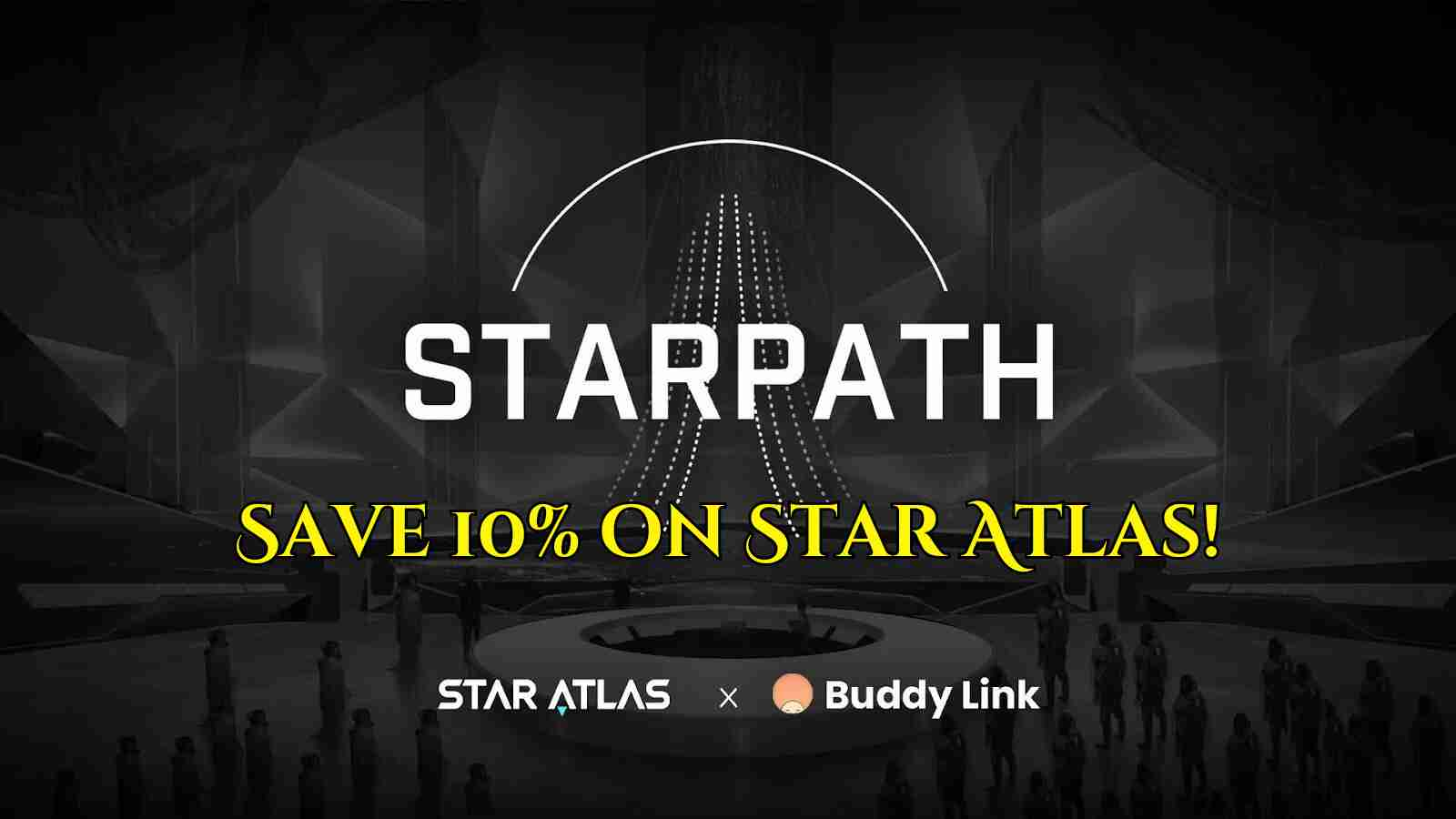


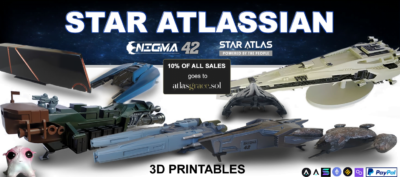
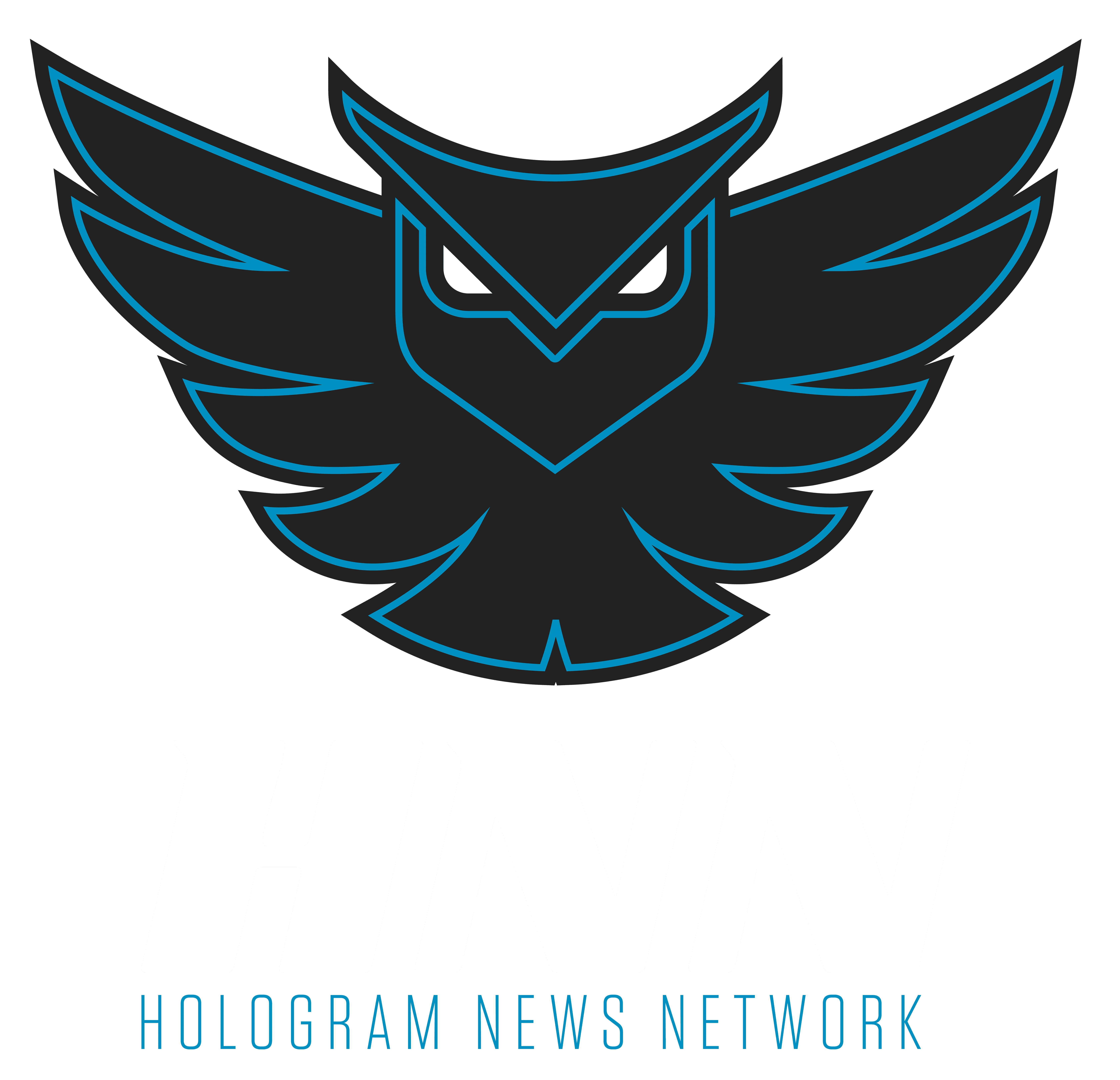
[…] The Star Atlas DAO, as experimental as any other DAO over the last several years, is not immune to t… As the Star Atlas DAO emerges from its infancy, Star Atlas citizens must come to understand some of the political trappings to better safeguard against potential failures of DAO governance. […]
I blog quite often and I really appreciate your information.
This great article has truly peaked my interest.
I’m going to book mark your blog and keep checking for new details about once a week.
I opted in for your Feed as well.